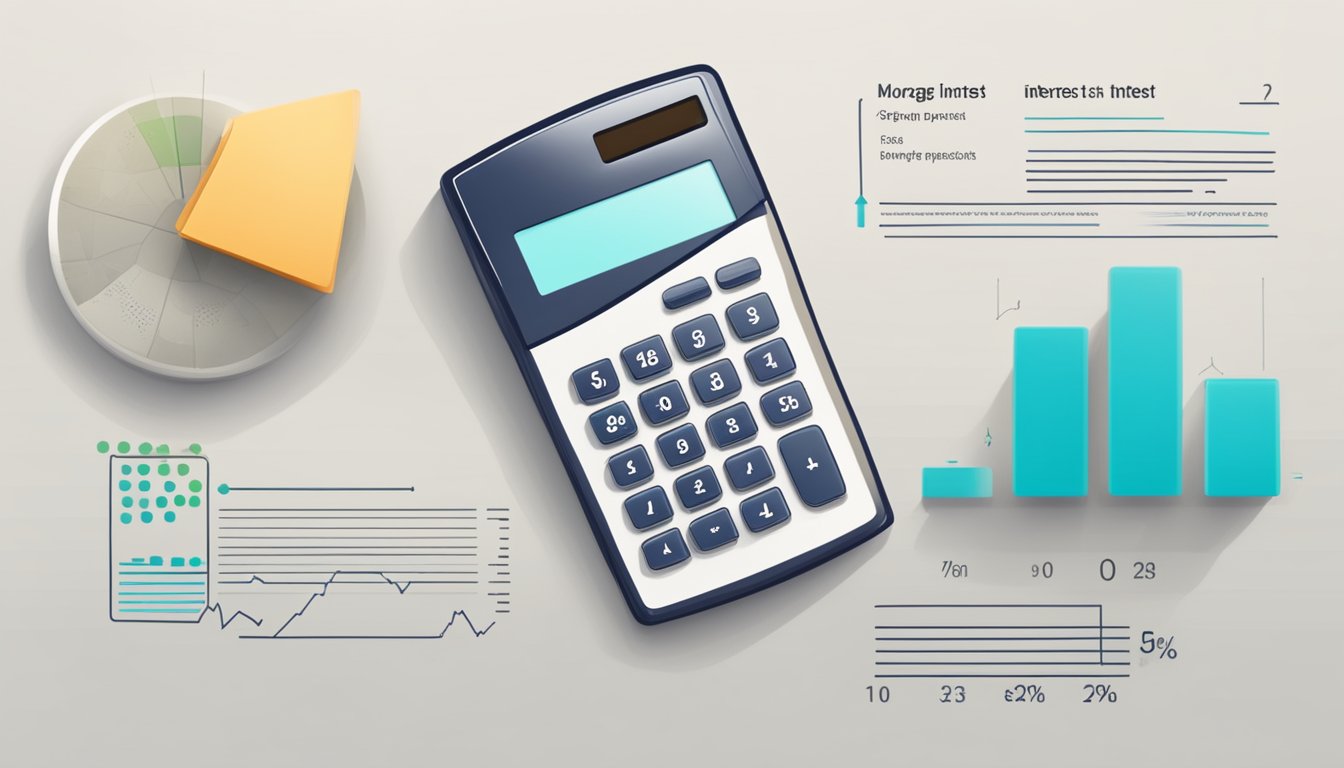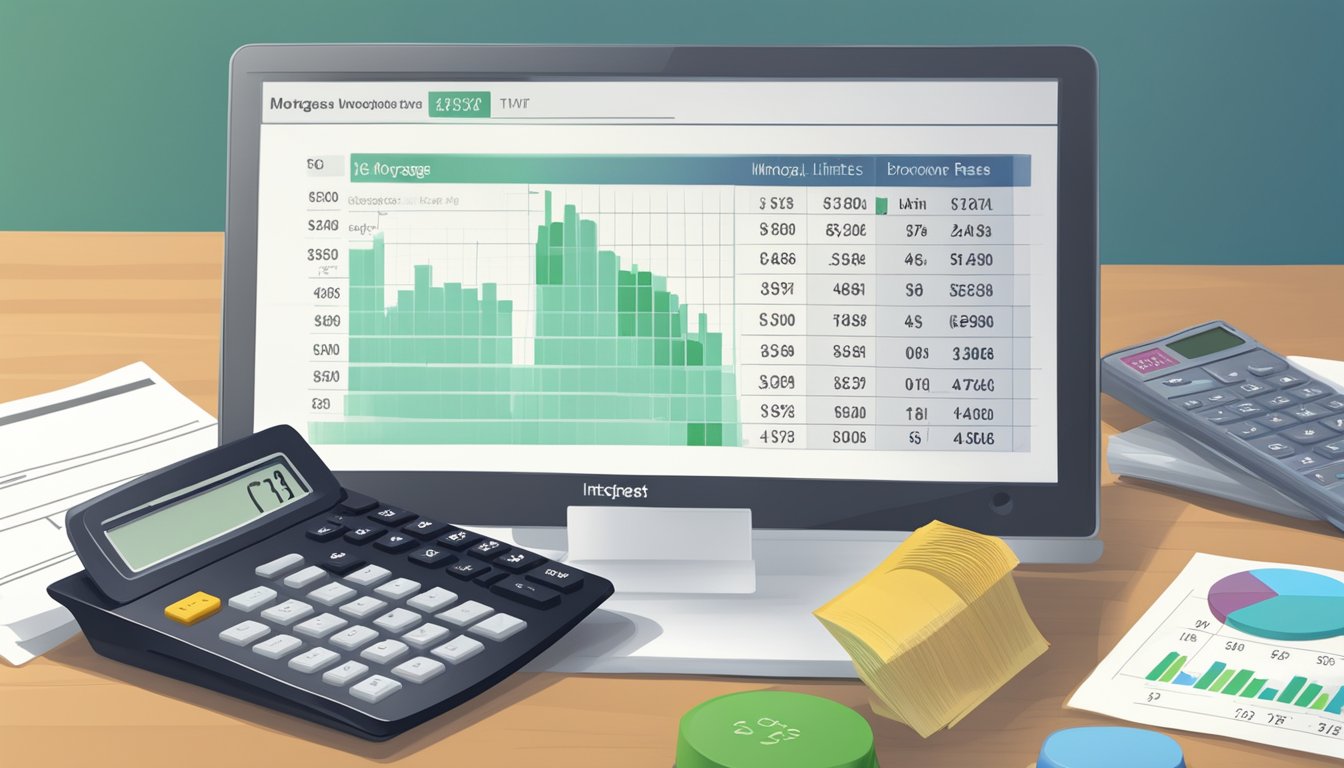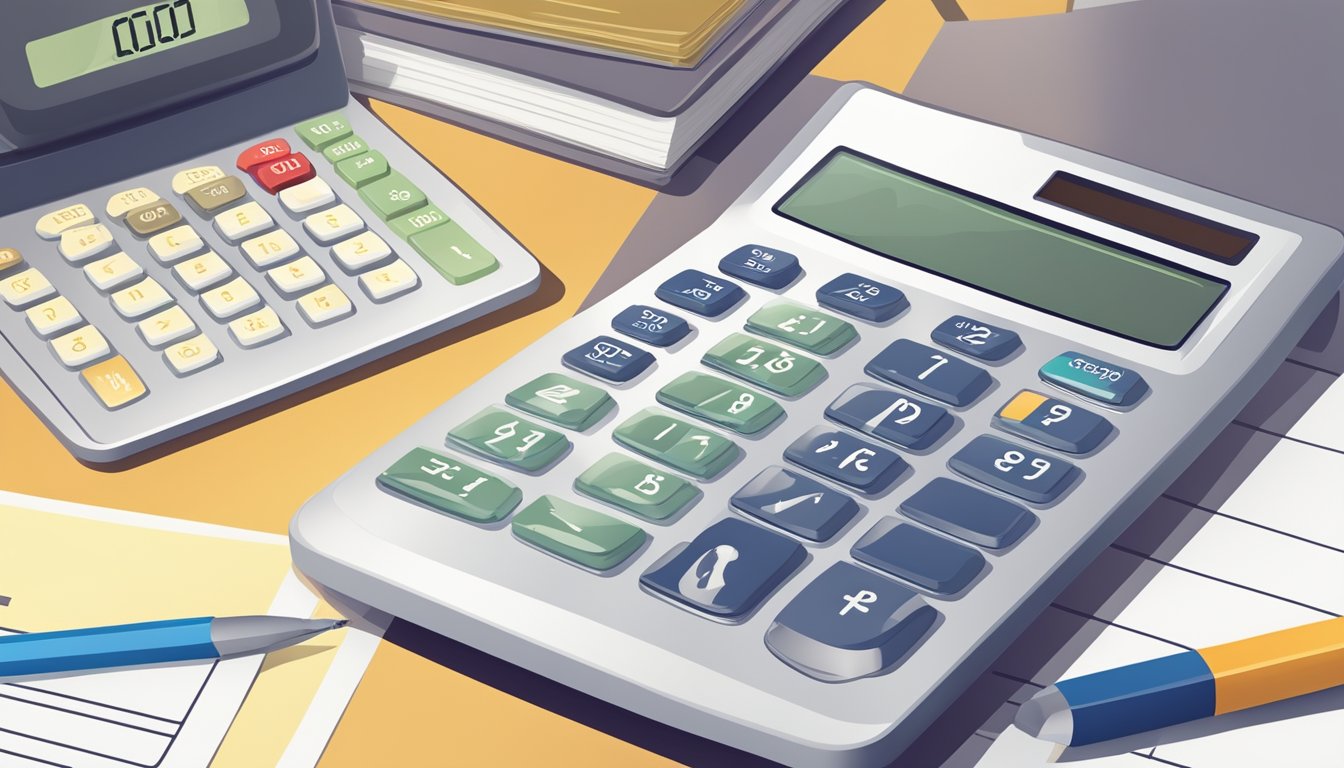If you’re thinking of buying a home in Singapore, you’ll need to understand how mortgage interest is calculated. Your mortgage interest rate will have a significant impact on your monthly payments and the overall cost of your home. There are several factors that determine how mortgage interest is calculated in Singapore, including the type of loan you choose and the prevailing market interest rates.

When you take out a mortgage in Singapore, your interest rate will be calculated based on your outstanding loan balance and the prevailing market interest rates. There are two types of loans in Singapore: fixed-rate and floating rate. Fixed-rate means the interest is constant, while the floating rate fluctuates based on the market conditions. The interest payable each month is calculated using a formula that takes into account your outstanding loan amount and the interest rate.
Calculating your mortgage payments can be a complex process, but understanding how mortgage interest is calculated is essential to ensure you get the best deal on your home loan. By knowing what factors affect your interest rate and how to calculate your monthly payments, you can make informed decisions about your home loan and avoid any surprises down the line.
Key Takeaways
- Understanding how mortgage interest is calculated is essential to getting the best deal on your home loan.
- Your mortgage interest rate is calculated based on your outstanding loan balance and the prevailing market interest rates.
- There are two types of loans in Singapore: fixed-rate and floating rate.
Understanding Mortgage Interest in Singapore

If you’re planning on purchasing a property in Singapore, one of the most important things you need to consider is the mortgage interest rate. This is the fee you’ll pay to your lender for borrowing the money to buy your home. Understanding how mortgage interest is calculated in Singapore can help you make the right decisions when it comes to choosing a mortgage.
Types of Interest Rates
There are two types of interest rates for mortgages in Singapore: fixed-rate and floating rate. A fixed-rate mortgage means that your interest rate remains constant throughout the loan term, while a floating rate mortgage means that your interest rate fluctuates based on market conditions.
Fixed-rate mortgages offer stability and consistency, while floating rate mortgages can be more flexible and may offer lower interest rates in certain market conditions. It’s important to consider your financial situation and risk tolerance when deciding which type of mortgage interest rate is best for you.
Factors Influencing Interest Rates
Several factors can influence mortgage interest rates in Singapore. One of the most significant factors is the state of the economy and market conditions. When the economy is doing well, interest rates tend to rise, while they tend to fall during economic downturns.
Another factor that can influence interest rates is the Singapore Interbank Offered Rate (SIBOR), which is the rate at which banks lend to one another. SIBOR can affect the interest rates of floating-rate mortgages in Singapore.
It’s also important to note that different lenders may offer different interest rates, so it’s essential to shop around and compare rates before choosing a mortgage.
In conclusion, understanding how mortgage interest is calculated in Singapore is crucial when it comes to purchasing a property. By considering the types of interest rates and the factors that can influence them, you can make informed decisions and choose the right mortgage for your needs.
Calculating Your Mortgage Payments

If you’re planning to take out a mortgage loan to buy a home in Singapore, understanding how mortgage interest is calculated is crucial. This will help you make informed decisions and avoid any surprises down the road.
Loan Amount and Home Value
The loan amount is the total amount of money you borrow from the lender. This amount is usually determined by the value of the property you’re buying. In Singapore, most lenders offer up to 75% of the property’s value as a loan.
The home value, on the other hand, is the price of the property you’re buying. It’s important to note that the home value and loan amount are not the same. The loan amount will always be lower than the home value, as you’ll need to make a down payment.
Impact of Loan Tenure on Interest
The loan tenure is the length of time you have to repay your mortgage loan. In Singapore, most lenders offer loan tenures of up to 35 years. The longer your loan tenure, the lower your monthly mortgage payment will be. However, this also means that you’ll end up paying more in interest over the life of the loan.
It’s important to find the right balance between your loan tenure and your monthly mortgage payment. You don’t want to stretch your loan tenure too long, as this will result in higher interest payments. At the same time, you don’t want to have a monthly mortgage payment that’s too high, as this can strain your finances.
To calculate your monthly mortgage payment, you can use a mortgage calculator. This tool will take into account your loan amount, interest rate, and loan tenure to give you an estimate of your monthly payment.
Overall, understanding how mortgage interest is calculated in Singapore can help you make informed decisions when it comes to buying a home. By knowing the impact of loan amount, home value, loan tenure, and monthly mortgage payment, you can find the right mortgage loan that fits your budget and lifestyle.
Eligibility and Borrowing Limits

When it comes to taking out a mortgage in Singapore, there are certain eligibility criteria that you must meet, and borrowing limits that you must adhere to. Here is a breakdown of the key factors that determine your eligibility and borrowing limits:
Total Debt Servicing Ratio (TDSR)
The Total Debt Servicing Ratio (TDSR) is a framework introduced by the Monetary Authority of Singapore (MAS) to ensure that borrowers do not overextend themselves financially. The TDSR calculates the percentage of your income that can go towards servicing your loan, taking into account all of your existing debt obligations.
To be eligible for a mortgage in Singapore, your TDSR must not exceed 60% of your gross monthly income. This means that if you earn $5,000 per month, your total debt obligations (including your mortgage) cannot exceed $3,000 per month.
Mortgage Servicing Ratio (MSR)
The Mortgage Servicing Ratio (MSR) is a similar framework that applies specifically to HDB (Housing and Development Board) flats. The MSR calculates the percentage of your income that can go towards servicing your HDB loan.
To be eligible for an HDB loan in Singapore, your MSR must not exceed 30% of your gross monthly income. This means that if you earn $5,000 per month, your HDB loan repayments cannot exceed $1,500 per month.
Maximum Loan Amount
Your maximum loan amount will depend on a range of factors, including your income, your TDSR, and the value of the property you are purchasing. In general, you can expect to borrow up to 75% of the property’s value, although this may be lower if your TDSR is high.
Income
Your income is a key factor in determining your eligibility for a mortgage, as well as your borrowing limits. In general, the higher your income, the more you will be able to borrow. However, you must also ensure that your TDSR and MSR are within the acceptable limits.
Regulations
Finally, it is important to note that there are a range of regulations that govern the mortgage industry in Singapore. These regulations are designed to protect borrowers and ensure that they are not taken advantage of by lenders. Some of the key regulations include the TDSR and MSR frameworks, as well as rules around loan tenure and interest rates.
Overall, taking out a mortgage in Singapore can be a complex process, but by understanding the key eligibility criteria and borrowing limits, you can ensure that you are able to secure the loan you need to purchase your dream home.
Types of Home Loans in Singapore

If you’re looking to buy a property in Singapore, you have the option of taking out a housing loan from either the Housing Development Board (HDB) or a bank. Each option has its own set of advantages and disadvantages, so it’s important to understand the differences between the two.
HDB Loans vs Bank Loans
HDB loans are only available for the purchase of HDB flats. The interest rates for HDB loans are fixed, and are usually lower than those offered by banks. Additionally, HDB loans come with a Mortgage Servicing Ratio (MSR) of 30%, which means that your monthly mortgage payments cannot exceed 30% of your gross monthly income.
Bank loans, on the other hand, are available for the purchase of both HDB flats and private properties. The interest rates for bank loans can be fixed or variable, and are usually higher than those offered by HDB loans. However, bank loans come with more flexibility in terms of repayment options and loan features.
Loan Packages and Features
When it comes to bank loans, there are a variety of loan packages and features available. Some banks offer packages with fixed interest rates, while others offer packages with variable interest rates. Additionally, some packages come with features such as the ability to make prepayments without penalty, or the ability to switch between fixed and variable interest rates.
It’s important to carefully consider which loan package and features are right for you. For example, if you want to have more flexibility in terms of repayment options, you may want to choose a package with a variable interest rate. On the other hand, if you want to have more certainty in terms of your monthly mortgage payments, you may want to choose a package with a fixed interest rate.
In conclusion, whether you choose to take out a housing loan from HDB or a bank, it’s important to do your research and choose the option that best suits your needs. With the right loan package and features, you can make your dream of owning a property in Singapore a reality.
Strategies for Mortgage Management

Managing your mortgage can be a daunting task, but there are several strategies you can employ to help you stay on top of your payments and reduce your overall interest costs. Here are two key strategies to consider:
Refinancing Your Home Loan
If you’re looking to reduce your monthly repayments or shorten your loan repayment period, refinancing your home loan could be a good option. Refinancing involves taking out a new loan to pay off your existing loan, often with a different lender. This can help you secure a lower interest rate, which can result in significant savings over the life of your loan.
Before you decide to refinance, it’s important to do your research and compare the costs and benefits of different loan options. You should also consider any fees or penalties associated with refinancing, as these can eat into your potential savings.
Locking in Interest Rates
Interest rates in Singapore can fluctuate over time, which can make it difficult to predict what your monthly repayments will be. One way to manage this uncertainty is to lock in your interest rate. This involves agreeing with your lender to fix your interest rate for a certain period of time, usually between one and five years.
Locking in your interest rate can provide peace of mind and help you budget more effectively, as you’ll know exactly what your monthly repayments will be during the fixed rate period. However, it’s important to note that fixed rate loans often come with higher interest rates than variable rate loans, so you’ll need to weigh up the pros and cons before making a decision.
By employing these strategies, you can take control of your mortgage and reduce your overall interest costs. Remember to always do your research and seek professional advice before making any major financial decisions.
Frequently Asked Questions

What’s the magic behind calculating your mortgage interest in Singapore?
Calculating your mortgage interest in Singapore is not as complicated as it may seem. The interest rate is calculated based on the principle of amortisation. When explaining the terms and conditions of a home loan to borrowers, Singaporean banks tend to provide an amortisation schedule to explain how monthly repayments are structured over the loan tenure. The amount of interest paid is the highest at the start of the mortgage, and decreases with each subsequent payment.
Can you demystify how HDB loan interest gets crunched?
Calculating HDB loan interest is similar to calculating mortgage interest. The interest is calculated based on the principle of amortisation. HDB loans are pegged to the CPF Ordinary Account interest rate, which is currently at 2.5%. HDB loan interest rates are reviewed every quarter and are subject to change depending on market conditions.
Ever wondered about the epic tale of Singapore’s mortgage interest rate history?
Singapore’s mortgage interest rate history is an interesting one. In the 1980s, interest rates were as high as 14%. However, with the introduction of the Singapore Interbank Offered Rate (SIBOR) in 1986, interest rates became more stable. In recent years, interest rates have been at historic lows, with some banks offering rates as low as 1.2%.
Curious about the average interest rate for a jolly good mortgage in Singapore?
The average interest rate for a mortgage in Singapore varies depending on the type of loan and the bank. Generally, the interest rates for HDB loans are lower than those for private property loans. As of February 2024, the average interest rate for a private property loan is around 1.8%, while the average interest rate for an HDB loan is around 2.6%.
How do banks figure out the total mortgage loan amount you get?
Banks figure out the total mortgage loan amount you get by taking into consideration several factors, including your income, credit score, and the value of the property you are purchasing. Typically, banks will lend up to 75% of the property’s value, with the remaining 25% being paid by the borrower as a down payment.
What’s the secret formula for calculating interest on your mortgage repayments?
The formula for calculating interest on your mortgage repayments is (Outstanding loan amount x Interest rate) ÷ 12 = Monthly interest. This means that the amount of interest paid is the highest at the start of the mortgage, and decreases with each subsequent payment. The interest is calculated based on the principle of amortisation, and the monthly instalments are structured to ensure that the loan is fully paid off by the end of the loan tenure.




